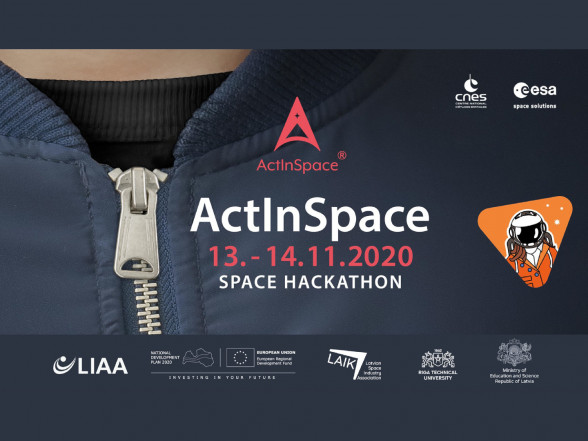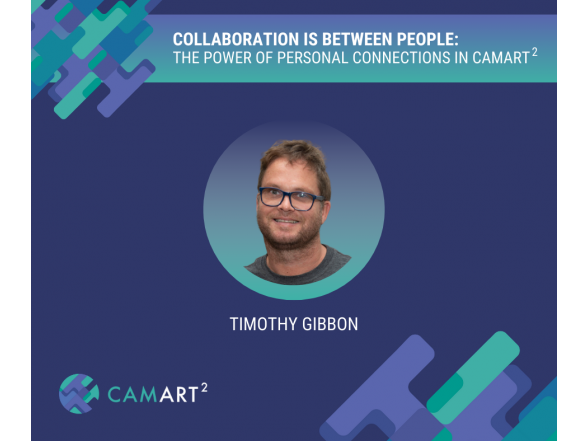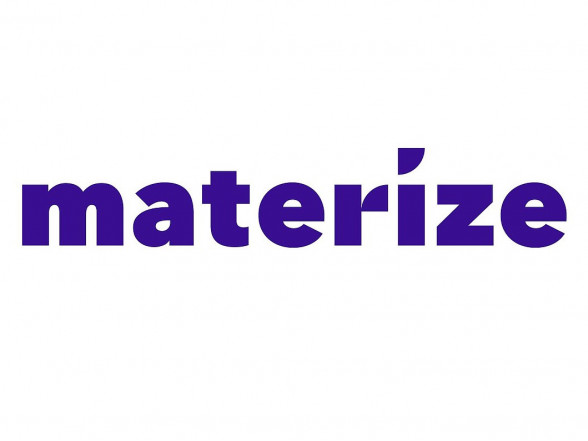The 4th international space hackathon "Act in Space" took place for 24 hours in 45 cities in 45 countries around the world on November 13-14. For the first time due to the pandemic, the hackathon took place online, which was a big challenge for the event organizers, but everyone managed it successfully. In total, 70 participants took part in the Latvian edition of the hackathon, forming 13 teams. Hackathon’s task was to develop solutions for the use of space technologies in everyday life within 24 hours, covering a wide range of industries - healthcare, aviation, artificial intelligence, telecommunications, logistics, etc.
During the 24 hours, participants were supported by 20 mentors - experts in the fields of information technology, electronics and environmental monitoring, business development specialists and members of the Latvian Space Industry Association. Among the hackathon mentors were also representatives from our own Institute of Solid State Physics – customer solutions manager from MATERIZE platform Dr.phys. Ilze Aulika and leading researcher from laboratory of visual perception Dr.phys. Sergejs Fomins.
The solutions offered by the participating teams were evaluated by competent jury. One of the jury members - leading researcher and Deputy Director for innovation at the ISSP UL Dr.phys Andris Anspoks. After the hackathon he commented that it is a good thing that the event gathered so many enthusiasts from various backgrounds, though the teams with ideas based in IT technologies prevailed. This hackathon is almost unmatched opportunity for space based ideas from Latvia to be noticed in the world. Mr. Anspoks felt that some of the participants had a lack of enough time to prepare their idea for the hackathon and from his experience this meant shortage of manifestation of ideas grounded in deep engineering and technologies. The competition in space industry is tough and thus the idea needs not only to be innovative, but also masterfully developed to the detail to be competitive. The winner team was really the best, but it also needs a lot of effort to be competitive among participants of the global competition which will take place sometime in the beginning of 2021.
The winner of the Latvian hackathon - 3D Constellation offered a solution for continuous observation using nano-satellites. Representative of the winning team and a researcher at Riga Technical University Shravan Koundinya Vutukuru explains: "This was my 21st hackathon, in which I participated, and the second Act in Space hackathon - in the first my team took the 2nd place, this time I managed to win. From the very beginning, we had a clear idea of what we wanted to work on, and with the support of our team members, we managed to implement it. Many thanks also to the mentors, without whose knowledge and support the outcome would not be so good. Participation in the international competition is a good motivation for me and the team to move towards the implementation of the idea, and we have the necessary competencies to do it.” This team will compete for the main prize in the international competition: a flight in weightless conditions aboard the Airbus A310 Zero G aircraft.
"xT saam" team won the 2nd place in the Latvian competition of hackathon. The team hopes to change the way space industry gets the resources it needs by providing fully automated space production. This would mean more efficient use of resources on Earth and the Moon, increase safety for people on the Moon, and reduce the risk of environmental hazards. The technology developed by the team is based on active learning and machine learning algorithms. The prize of this team is further cooperation with the Latvian Space Industry Association (LAIK) in developing the idea.
The hackathon jury awarded the 3rd place to two teams - "Skylar" and "MaxSpace". Skylar offers to generate green energy from underwater volcanoes using space data. The team found high underwater volcanic activity off the coasts of Chile and Japan. These regions will receive satellite data that will be processed by artificial intelligence. The information will then be manually transmitted to the unmanned vessel, which will collect energy with the help of submarine turbines.
The second 3rd place winner - the "MaxSpace" team - wants to develop a "Don’t let us die" application for smartphones. It would make it possible to compare landscapes now and in the future if climate change continues at current levels. This application would also offer additional challenges on how to sort waste properly and how to reduce carbon dioxide emissions on a daily basis.
The Act In Space is founded by the French Space Agency (CNES), the European Space Agency (ESA) and its network of business incubators. Act In Space is the only competition of its kind in the world where participants are provided with ESA data, technologies and their patents to develop new and innovative solutions.
The international space hackathon Act In Space was supported by global companies such as Airbus and Continental. The Latvian edition hackathon was organized by the Investment and Development Agency of Latvia (LIAA), Ministry of Education and Science of Latvia and Latvian Space Industry Association. The event was supported by European Regional Development Fund and Riga Technical University.
The hackathon was organized within the framework of the LIAA project “Innovation Motivation Program” and is co-financed by the European Regional Development Fund and the European Union.



